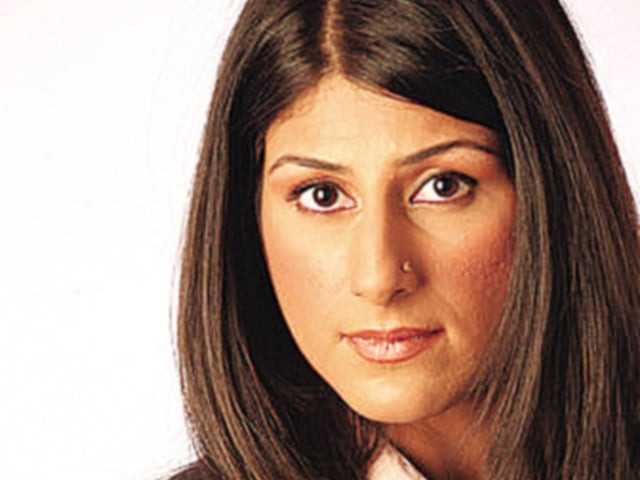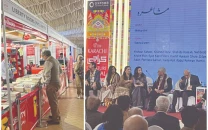Gawaahi.com: Pushing barriers
Gawaahi.com is a digital effort to make unheard voices heard.

Naveen Naqvi, the cofounder and director of Gawaahi.com, a professional journalist and activist speaking about the project said, “With public spaces shrinking, we wanted to create a space of resistance, where Pakistanis could celebrate their individual voices. I believe that in the kind of violence and hatred we see brewing right now any iota of resistance counts — it’s time for women, the youth and minorities to reclaim public space.”
The main idea behind Gawaahi.com is to archive and provide the stories of Pakistanis with special focus on those who have endured and survived abuse. This includes minorities and women, who may be a majority group but retain the status of a minority group in many parts of the world, including Pakistan.
The Express Tribune talks to Naqvi and explores more about the project.
Both you and Sana Saleem (the co-founders of Gawaahi.com) have popular political blogs that even won awards; why did you both feel the need to develop another site?
Well, the site is quite different from our blogs. It’s political because I believe that everything is political, but it’s not offering political analysis in the way that our blogs do — especially Sana’s. Both Sana and I are deeply interested in what you could call ‘the other story.’ Issues that are basically under-reported.
What are the challenges of doing such a project?
At the moment, our greatest challenge is to restrain ourselves! We’re both so excited about the project, we don’t know where to stop and breathe. As is common in the Third World, and is certainly the case in Pakistan, it is not hard to come by stories. Asking the right questions, producing people’s accounts in creative ways, scripting the digital stories so that they do not lose their truth, but make for compelling narratives — all that is hard. Then of course, there’s driving out to all kinds of places in search of stories. And all of this is done on a next-to-nothing budget. But let me say, that this is what may be perceived as a challenge. To us, this is what makes Gawaahi.com so much fun!
What do you hope to achieve with this archive of information? Is this a preliminary research base for human rights organisations?
There is no tangible use of an archive, is there? The reason for its presence is quite abstract. We’re hoping it will be a useful resource for donor agencies, NGOs, media houses, governments including ours, donor states and philanthropist organisations. Just as importantly, it’s for survivors to connect with others who have had similar experiences. It’s also for those who may be caught in a circle of abuse to see that there are ways out, and survival is possible. It’s for young children to understand that no one has the right to touch them in unwanted ways, and that it’s not their fault when it does happen. It’s for parents to understand that it’s better to confront a situation rather than to curb the child, making him or her feel responsible or oppressed.
What did you learn in the process of creating this website?
The site is a constant learning process for both of us. I’ll speak for myself. It’s a great teacher of patience — I’m not exactly known for my patience. You learn to be fluid with your ideas, you may start with something, but then the idea has a life too, and you have to let it lead you. What I haven’t learnt is self-discipline. I’m working from morning till past midnight. Even when I’m asleep, I don’t switch off — my dreams are about Gawaahi.com!
Published in The Express Tribune, February 23rd, 2011.



















COMMENTS
Comments are moderated and generally will be posted if they are on-topic and not abusive.
For more information, please see our Comments FAQ